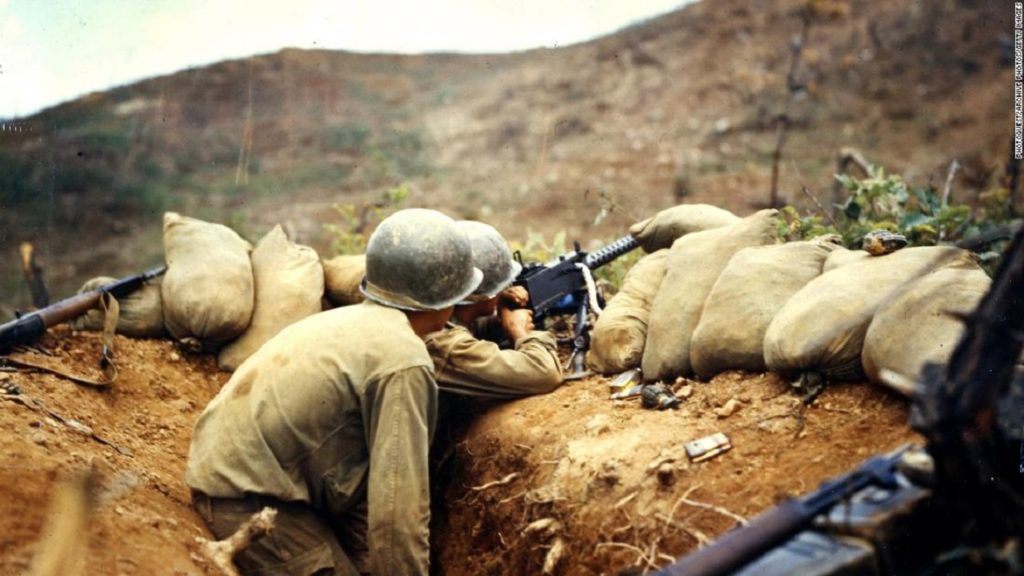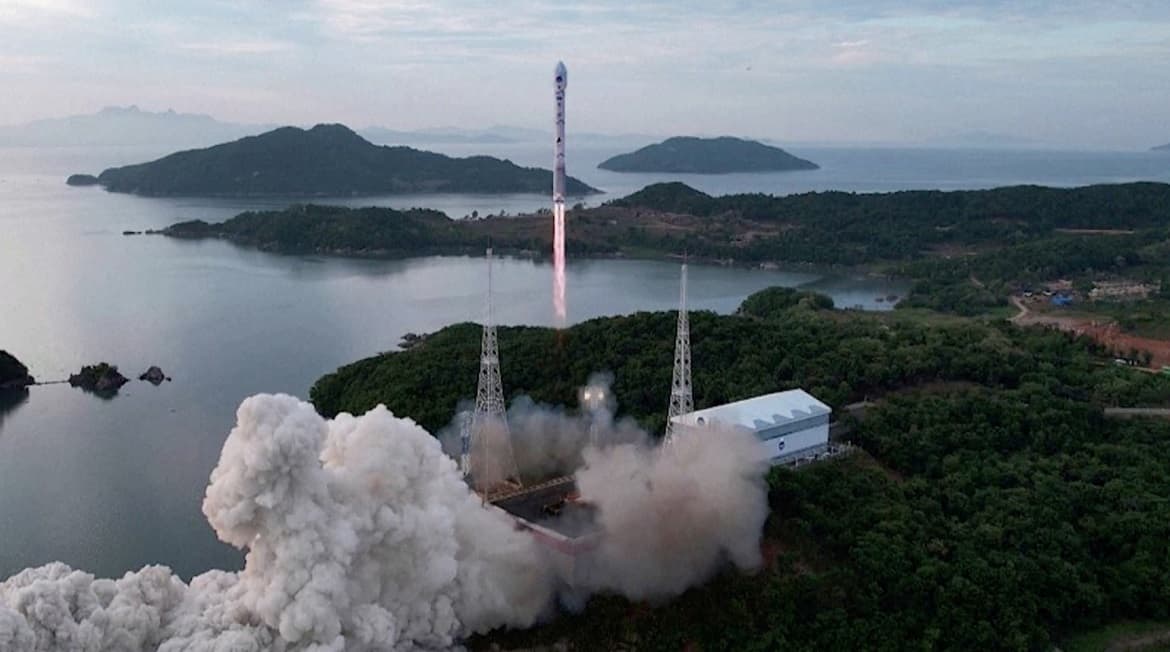By Sunny Lee – Founder and President at CGPS (Center for Global Peace and Security), and Director at IKUPD (Institute for Korea-U.S. Political Development), Washington DC.
The tragedy of fratricidal war in the Korean Peninsula began on June 25, 1950, when Kim IlSung of North Korea purposely invaded South Korea with assured plan. It was even 4am on Sunday morning when most soldiers went on holiday vacation.

Without declaring war, North Korea’s troops simultaneously attacked the whole area of the 38th parallel north line. Kim IlSung surely pronounced that it will take just three days to overthrow the South Korean Government for reunification. Such a bold venture came from Stalin’s military support and Máo Zédōng’s promise to dispatch troops to help Kim IlSung during the Korean War.
Even though the Korean War broke out as a domestic war, it expanded as an international war in a very short time. Korea’s geopolitical importance woke up the U.S. which dispatched troops right away and China’s international stance became obviously strengthened as a rising communist country by taking part in the Korean War.
The Korean War was the biggest challenge in the Cold War right after World War II with a strong potential that could be extended toward World War III. Not only the Soviet Union and China but also the U.S. along with many of democratic countries got deeply involved in the Korean War as time went by. Since the beginning of the Cold War, the communist bloc and the democratic world have picked up to the sharpest point of confrontation to surpass each other. Such a frantic competition was explored through the Korean War as North Korea represented the communist bloc and South Korea represented democratic countries.
However, the Korean War became finally suspended without giving a victory to any side, because the U.S. President Truman hindered General MacArthur from expanding the war by nuclear bombing in China. After Operation Chromite, MacArthur almost came to the moment of Korean Reunification, who conquered the whole area of North Korea. But China jumped in the war to save North Korea with a huge scale of military support, and it resulted in a weary war for three years.
What is the main reason to initiate the Korean War? There is a historical clue that the geopolitical status of the Korean Peninsula brought out such a tragic war.
The U.S. approved Japan to take over Korea as a colony in the Treaty of Portsmouth after the Russo-Japanese War in 1904-1905. The U.S. already exchanged the deal in the Taft–Katsura Agreement that it will take over the Philippines and instead, Japan will take over Korea.
After successful modernization based on imperialism, Japan started its bold ambition to conquer Asia by joining World War II and eventually attacked Hawaii. The U.S. was frightened and decided to demolish Japan’s imperialism. After serial nuclear bombing, Japan surrendered so that Korea became automatically independent. At the same time, the U.S. and the Soviet Union divided the Korean Peninsula in the 38th parallel north line for governing each side, even though Korean people severely resisted and protested. Division of Korea was absolutely the result of the Cold War by two leading countries: the Soviet Union and the U.S. As such, division pushed North Korea to a temptation of war that Kim IlSung plotted communist reunification in the Korean Peninsula.
The U.S. recognized the importance of Korea’s geopolitical status in Northeast Asia through the Korean War. If Korea turns into a communist country depending on the Soviet Union and China, the victory of the Cold War would be moving on the side of the communist bloc. Afraid of such an unpleasant situation, the U.S. strived to lead the Korean War and got stuck around the 38th parallel north line for three years until the Armistice Agreement was finally signed between the commanders of the United Nations, North Korea, and China.
The Korean Peninsula is still in the Korean War which will continue unless substituted as a peaceful reconciliation with declaration of ending the war. In another way, the Korean War can be completely terminated when the two Koreas become reunified. It’s the best way to end the Korean War without military conflicts.
There are three remarkable benefits through Korean Reunification.
First, it dedicates world peace. Reunification of the two Koreas divided by the Cold War will impact on terminating the New Cold War. Around the Korean Peninsula, regional security has been in danger because North Korea keeps on firing missiles and testing nuclear weapons as a core country of the New Cold War. And belligerent Russia and China are still on the side of North Korea for balance of power in Northeast Asia.
Korean Reunification will resolve such a security crisis based on the geopolitical environment and settle down regional peace and prosperity. Furthermore, Russia, China, Japan, and the U.S. surrounding the Unified Korea will reduce military competition and possibility of potential war around this area.
Second, it flourishes the world economy. The Unified Korea can play the role of bridge between the Continent and the Ocean, where it can be the hub of the world economy. Korea’s industrial techniques and economic potential as a logistics country will upgrade the world economy.
For instance, if TKR(Trans-Korean Railway) connects with TSR(Siberian), it can also connect with TMR(Manchurian), TMGR(Mongolian), and TCR(China) to join TSR. TKR finally reaches all European countries via Eurasia. From Busan to Madrid, Paris, Rome, and Berlin is no longer a dream. Saving time and cost will produce incredible economic benefits around railways.
Third, it accomplishes world culture. Unified Korea will become the center of the world as a global pivotal country from the Continent to the Ocean, and from the East to the West. Fatal experience by neighboring countries in history will be turned into a new challenge to lead international society. K-culture is now leading the world and will spread at a much faster speed after reunification.
Therefore, Korean Reunification is not only a domestic issue in the Korean Peninsula but also a worldwide issue for international peace and prosperity. It will dedicate regional security in Northeast Asia that reduces the risk of war and crisis of security. As well, it will fully explore the world economy and fulfill cultural achievement as a global pivotal country.
Sunny Lee – Founder and President at CGPS (Center for Global Peace and Security), and Director at IKUPD (Institute for Korea-U.S. Political Development), Washington DC. Sunny Lee is the author of 115 academic books in politics (original English and in German, French, Russian, Polish, Dutch, Italian, Spanish, and Portuguese). She is a bestseller writer not only in politics but also in literature on Amazon. Her recent book is titled: “The Influence on Humankind’s Peace through Korean Reunification: Creating new paradigm in social science by interdisciplinary research.”
(The opinions expressed in this article are solely those of the author and do not necessarily reflect the views of World Geostrategic Insights).
READ ALSO
Regional Security and Prosperity in Northeast Asia |








